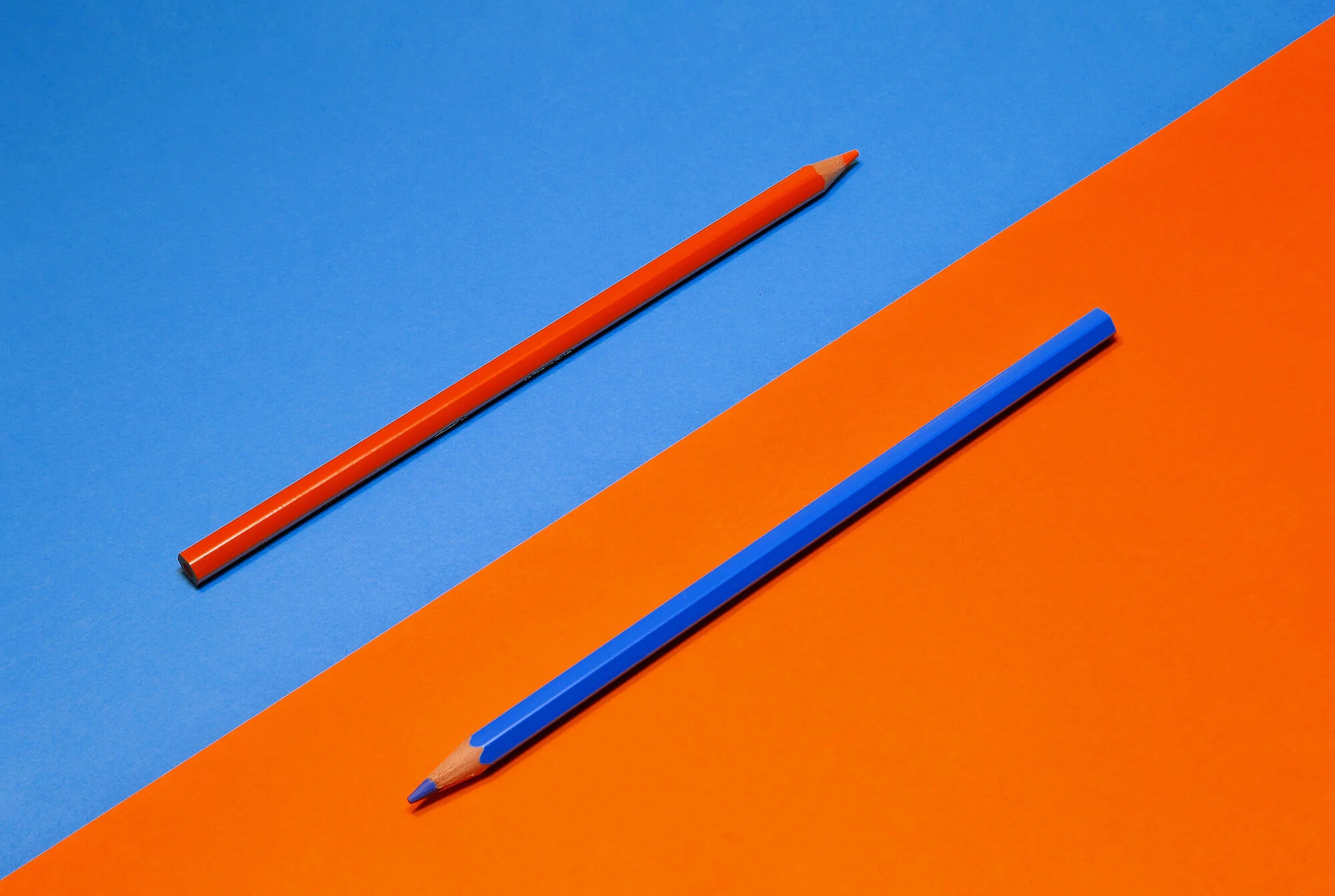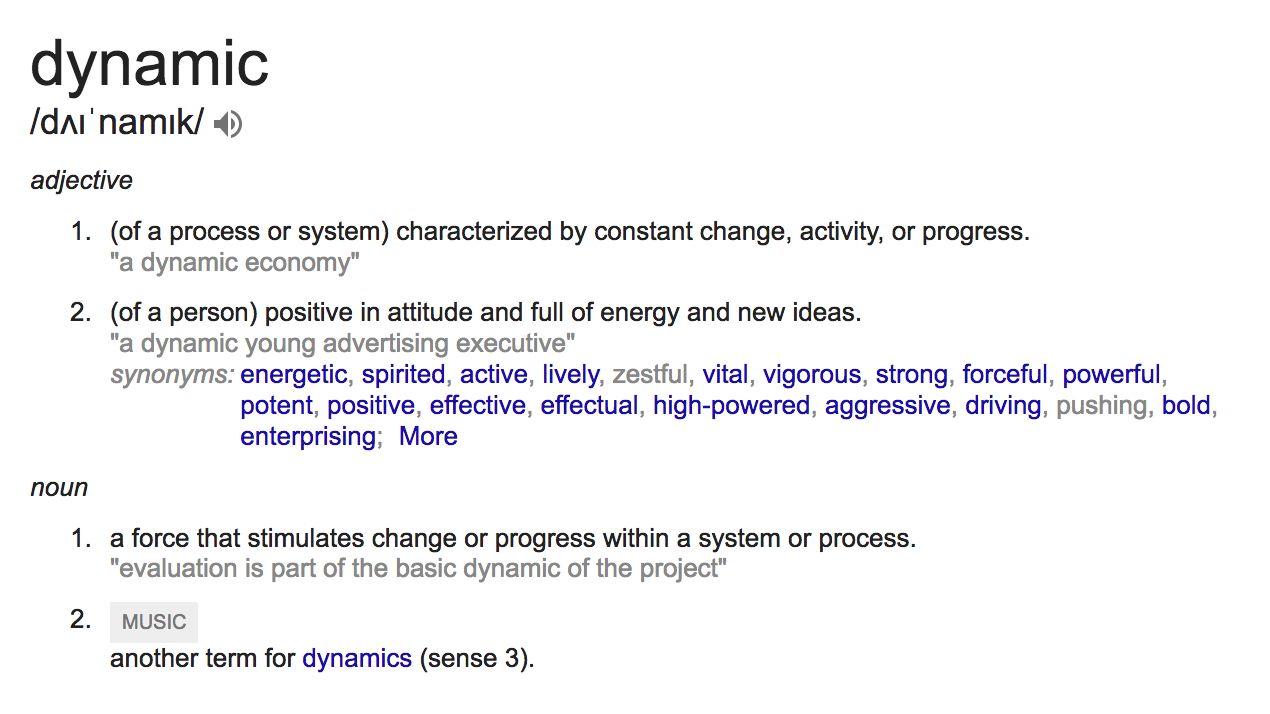Why being different is good, and it's not what you think
Photo: Alice Yamamura
We creatives are probably the first to say that different is good. We shout about new and innovative ideas and we harp on about originality. But what does different really look like?
I mean, have you ever honestly asked yourself that question?
A lot of creative jobs advertise for someone dynamic - and even if they don't use that term, most will give some sort of indication that they want somebody to stand out and produce original work. What this usually means on the surface is that the ideal candidate will be incredibly forthright with new ideas, but often in reality they will only compliment what is already happening within the company. Besides which, a lot of people have an image of what a 'dynamic' person looks like. How ironic. Dynamic has become stereotyped into something expected.
Here's what dynamic actually means.
If someone described me as that I would be very happy.
The problem is that when we talk about different, we often have something in mind. But if we truly want different we can't put it in a box and tie it up as an ideal package. Everyone wants the polished, all-singing, all-dancing kind of different - You know, the great stand-out inventions and jaw-dropping advert ideas, but these things rarely start out as that. True differences are often uncomfortable. They're awkward. And if we're really honest with ourselves we don't like different do we? Not in its purest form. Oh, sure, we think it's cool if someone shouts out ideas every now and again. We think it's great if someone is a bit quirky, perhaps with a sleeve of beautifully inked tattoos or hair dyed blue, but only if they speak our language and compliment us on our choice of studio decor. Only if they design stuff that's 'original', but not so original that it doesn't fit in with our current design tastes.
Suddenly the type of different we're after is not so different. It's just the same. The same with a slight twist; a little quirk; a tangent of what we're already doing. And deep down I get that - I get that everyone wants to work with people who they have things in common with. Not only that but everyone wants to make sure jobs are profitable, and if something works, why rock the boat? Everyone wants to make life a little easier. But we're not dealing with an entirely different species here, we're still dealing with people; people who have thought and reason. And if people do have thought and reason behind the work they do it is worth something, even if it's different.
"I wouldn't fit in," one designer told me after he had considered applying for a job he wanted. After questioning him on why, it turned out that the designer had a very different style of work, he had a different sense of fashion and he had different taste in music. He ate different stuff for lunch.
Different.
And part of me thought, do you know what, you're right. You don't fit in. They'd never employ you. But instead of that being a logical response, something didn't sit right with me. Surely, that's the most illogical thing ever. It doesn't add up. What can be of benefit to creativity and innovation if we're adding something that's exactly the same as we've always had? For many people it's a case of, why break the mould? And if you want to stay where you're at forever and never produce anything that stands out, then fine. But the chances are you'll have to adapt to the changes in culture and economy over time anyway, and what will that look like for you?
Being different – being truly original and dynamic – is probably not what you think. By its very nature it is unexpected, often revealing itself in very subtle ways. We've become lazy at recognising originality, opting for ideas that merely shout the loudest or simply follow trends.
So how can we realistically adapt and encourage diversity? I recently heard a talk by Darren Bowles of Moving Brands. He spoke of embracing differences within his company, to the point of mixing things up and being open to what people come up with. "What happens if you get a coder and a product designer to go away and create a typeface? You end up with something no one has ever thought of before." He spoke of this as a way of getting new ideas and moving work forward - challenging the norm and embracing differences. At another talk, Ryan Jefferson Hayes from MPC spoke of using less experienced creatives for a particular project in order produce work that was more edgy to fit the brief. They needed a different feel to the project and in turn they had to think differently about how they approached it, using different people, despite it going against how they normally worked.
Different is good. The unexpected is good.
In the past I've been almost apologetic for thinking differently; for not fitting in. There are no doubt millions of other creatives have felt the same way too, limiting their work to what they feel others think is dynamic and limiting truly original ideas. Truly going against the status quo is hard; it may seem messy or illogical to different minds. I have tried on many occasions to be what I've felt is expected of me; to be the *instant* ideas person, to be more pushy, a showman (woman) who delivers dynamic pitches (there's that word again, yawn), to be more 'business-like' and less 'relational'. I've tried to push down the things that are important to me in my work; to instead produce work that simply follows trends or is what I think people will buy from me. But it's boring, isn't it? Whenever I'm asked to produce something that's in somebody else's style, I'm not producing anything new. More importantly, it's not sustainable - and ultimately it's not good business. And that's not to say that stereotypically dynamic types (if there is such a thing) don't have a place in the industry, just that the balance perhaps needs be tipped so we can all be a little more open to collaboration. I, for example, want to work with people different to me to be able to be challenged and learn new things. But in order for that to happen others have to be open to my ways of working too.
There are probably more freelancers in the creative industry than in any other. It wouldn't come as a surprise to me if a lot of freelancers feel they don't fit in to traditional 9-5 job roles. Unfortunately this can lead to a lot of freelancers isolating themselves and their ideas, abandoning projects that they don't have the funding or man-power for. Their work goes without critique or opportunity for other suggestion. And no matter whether you're a freelancer or work for a business, we all need people to spur our work on and, in turn, inspire others. We all need people who are different to us.
No, I'm not suggesting hiring a lunatic just for the sake of thinking a little differently, but perhaps it's worth asking yourself whether your business would benefit from something that challenges your status quo. What positive aspects can this person bring that you're not currently able to implement? Where is your business falling short? What's missing? Could you bring in different people once in a while? Could you challenge people you're already working with to mix things up a bit? Swap roles for a day, even? Could you work with talent from different cultures and backgrounds? No, not for diversity's sake, but so that you can snap up some different insight and get more fresh perspective than anyone else in the industry. So that you can be truly original. So that you can ultimately sell more and have influence over a wider audience.
Messy, tidy, loud, quiet, feminine, masculine, cultured, uneducated (yes, really, but that's a whole other essay)... whatever you consider yourself NOT, it can still be good. You can use it to your advantage if you give it a chance to sharpen you - at worst to let you know what direction you don't want to go in, and at best to open up endless possibilities.
Different is good.


